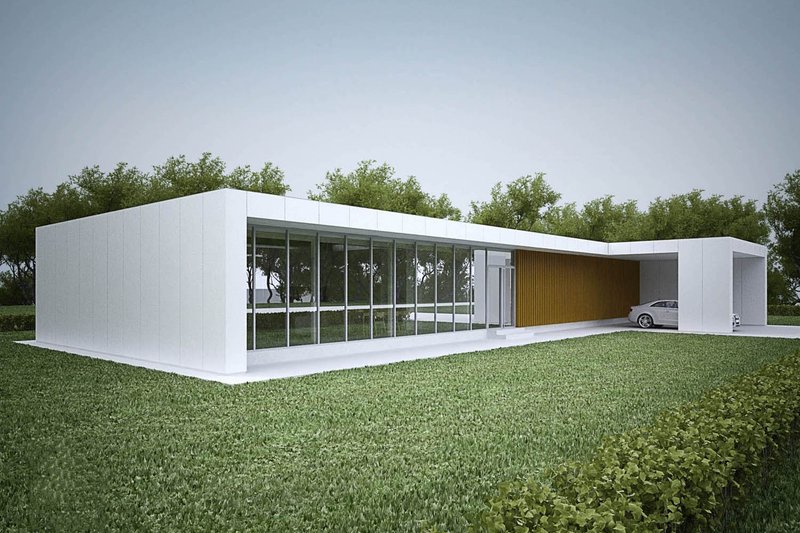Modular home entrepreneurship presents a significant opportunity in an industry that has been experiencing steady growth. The modular construction industry has seen increased adoption and recognition in recent years due to several factors, which contribute to the overall growth of the industry. Here are some key points regarding modular home entrepreneurship and industry growth:
- Demand for Affordable Housing: The demand for affordable housing continues to rise globally. Modular homes offer a cost-effective solution compared to traditional on-site construction, making them attractive to individuals and families seeking affordable housing options. Entrepreneurs in the modular home industry can tap into this growing demand by providing affordable, high-quality modular housing solutions.
- Speed and Efficiency: Modular construction allows for faster and more efficient home construction compared to traditional methods. This is especially beneficial for areas with urgent housing needs, such as disaster-stricken regions or rapidly growing urban areas. Entrepreneurs who can deliver modular homes quickly and efficiently can capitalize on this market demand.
- Customization and Design Flexibility: Modular homes offer design flexibility and customization options to meet the unique preferences and needs of homeowners. Entrepreneurs can differentiate themselves in the market by offering a wide range of design options, allowing customers to personalize their modular homes to suit their lifestyles.
- Sustainable and Energy-Efficient Homes: With increasing environmental awareness, there is a growing demand for sustainable and energy-efficient homes. Modular construction inherently promotes sustainability due to reduced material waste and controlled manufacturing processes. Entrepreneurs who focus on eco-friendly modular home designs and energy-efficient features can tap into the growing market of environmentally conscious consumers.
- Technology and Innovation: The modular construction industry is evolving with advancements in technology and innovation. Entrepreneurs who embrace these advancements, such as digital design tools, building information modeling (BIM), and automated manufacturing processes, can enhance efficiency, accuracy, and quality in their modular home production.
- Collaborative Partnerships: Modular home entrepreneurs can benefit from forming strategic partnerships with suppliers, manufacturers, and contractors. Collaborative partnerships can help streamline the supply chain, ensure quality control, and provide access to resources and expertise needed for successful modular home construction.
- Government Support and Incentives: Many governments recognize the benefits of modular construction and offer support and incentives to promote its adoption. Entrepreneurs in the modular home industry can take advantage of government programs, grants, and subsidies aimed at encouraging affordable housing solutions and sustainable construction practices.
Overall, the modular home industry is poised for growth as it addresses key challenges in the housing market. Entrepreneurs who understand the market demand, leverage technology and innovation, and deliver quality modular homes with speed and customization can find promising opportunities for success in this evolving industry.
Modular home entrepreneurship presents a significant opportunity in an industry that has been experiencing steady growth. The modular construction industry has seen increased adoption and recognition in recent years due to several factors, which contribute to the overall growth of the industry. Here are some key points regarding modular home entrepreneurship and industry growth:
- Demand for Affordable Housing: The demand for affordable housing continues to rise globally. Modular homes offer a cost-effective solution compared to traditional on-site construction, making them attractive to individuals and families seeking affordable housing options. Entrepreneurs in the modular home industry can tap into this growing demand by providing affordable, high-quality modular housing solutions.
- Speed and Efficiency: Modular construction allows for faster and more efficient home construction compared to traditional methods. This is especially beneficial for areas with urgent housing needs, such as disaster-stricken regions or rapidly growing urban areas. Entrepreneurs who can deliver modular homes quickly and efficiently can capitalize on this market demand.
- Customization and Design Flexibility: Modular homes offer design flexibility and customization options to meet the unique preferences and needs of homeowners. Entrepreneurs can differentiate themselves in the market by offering a wide range of design options, allowing customers to personalize their modular homes to suit their lifestyles.
- Sustainable and Energy-Efficient Homes: With increasing environmental awareness, there is a growing demand for sustainable and energy-efficient homes. Modular construction inherently promotes sustainability due to reduced material waste and controlled manufacturing processes. Entrepreneurs who focus on eco-friendly modular home designs and energy-efficient features can tap into the growing market of environmentally conscious consumers.
- Technology and Innovation: The modular construction industry is evolving with advancements in technology and innovation. Entrepreneurs who embrace these advancements, such as digital design tools, building information modeling (BIM), and automated manufacturing processes, can enhance efficiency, accuracy, and quality in their modular home production.
- Collaborative Partnerships: Modular home entrepreneurs can benefit from forming strategic partnerships with suppliers, manufacturers, and contractors. Collaborative partnerships can help streamline the supply chain, ensure quality control, and provide access to resources and expertise needed for successful modular home construction.
- Government Support and Incentives: Many governments recognize the benefits of modular construction and offer support and incentives to promote its adoption. Entrepreneurs in the modular home industry can take advantage of government programs, grants, and subsidies aimed at encouraging affordable housing solutions and sustainable construction practices.
Overall, the modular home industry is poised for growth as it addresses key challenges in the housing market. Entrepreneurs who understand the market demand, leverage technology and innovation, and deliver quality modular homes with speed and customization can find promising opportunities for success in this evolving industry.

Working in the modular construction business offers various opportunities across different roles and functions. Here are some different ways to work in the modular construction industry:
- Modular Construction Project Manager: As a project manager, you would be responsible for overseeing the entire modular construction project from start to finish. This includes managing the construction schedule, coordinating with suppliers and contractors, ensuring quality control, and overseeing the on-site installation process.
- Architect or Designer: Architects and designers play a crucial role in modular construction by creating innovative and functional designs for modular buildings. They collaborate with clients, engineers, and manufacturers to develop architectural plans that meet client requirements and comply with building codes and regulations.
- Modular Construction Engineer: Engineers in modular construction focus on the technical aspects of building design, structural integrity, and systems integration. They analyze project requirements, conduct feasibility studies, and ensure compliance with engineering standards. Additionally, they collaborate with architects and manufacturers to optimize the design and functionality of modular components.
- Sales and Business Development: Sales professionals play a key role in promoting modular construction services and generating new business opportunities. They identify potential clients, build relationships, prepare and present proposals, and negotiate contracts. Sales and business development personnel contribute to the growth and market expansion of modular construction companies.
- Manufacturing and Production: Working in the manufacturing and production sector of modular construction involves fabricating and assembling modular components in a factory-controlled environment. This includes roles such as carpenters, welders, electricians, plumbers, and quality control inspectors who ensure that the modules are built to specifications and meet quality standards.
- Logistics and Supply Chain: Professionals in logistics and supply chain management are responsible for coordinating the transportation, delivery, and on-site installation of modular components. They ensure timely delivery of modules to the construction site and oversee logistics operations to optimize efficiency and minimize disruptions.
- Sustainability and Energy Efficiency: With the growing emphasis on sustainable and energy-efficient construction, there are opportunities to work in roles focused on incorporating green building practices into modular construction. This can include positions in sustainable design, energy modeling, and renewable energy integration.
- Research and Development: Research and development teams in the modular construction industry focus on innovation, technology advancements, and process improvement. They explore new materials, construction methods, and manufacturing techniques to enhance the efficiency, quality, and sustainability of modular construction.
These are just a few examples of the diverse roles available in the modular construction business. Depending on your skills, interests, and expertise, there are opportunities to contribute in various capacities, whether it’s in project management, design, engineering, sales, production, logistics, sustainability, or research and development.



